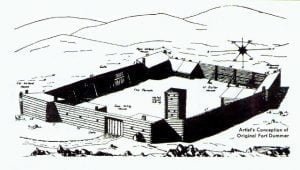Biography of Erasmus D. Shattuck
Judge E. D. Shattuck was born in Bakersfield, Franklin County, Vermont, December 31, 1824. He spent his boyhood and youth on a farm and was prepared for a collegiate course at Bakersfield Academy. In 1844 he entered Vermont University, pursued the full classical course and graduated in 1848. While in college he was dependent upon his own resources for means to prosecute his studies, and during vacations and some part of term time he taught school in the country or had private classes in the village. Notwithstanding these disadvantages and interruptions he completed the college course in the prescribed time … Read more

